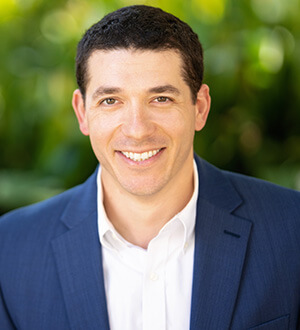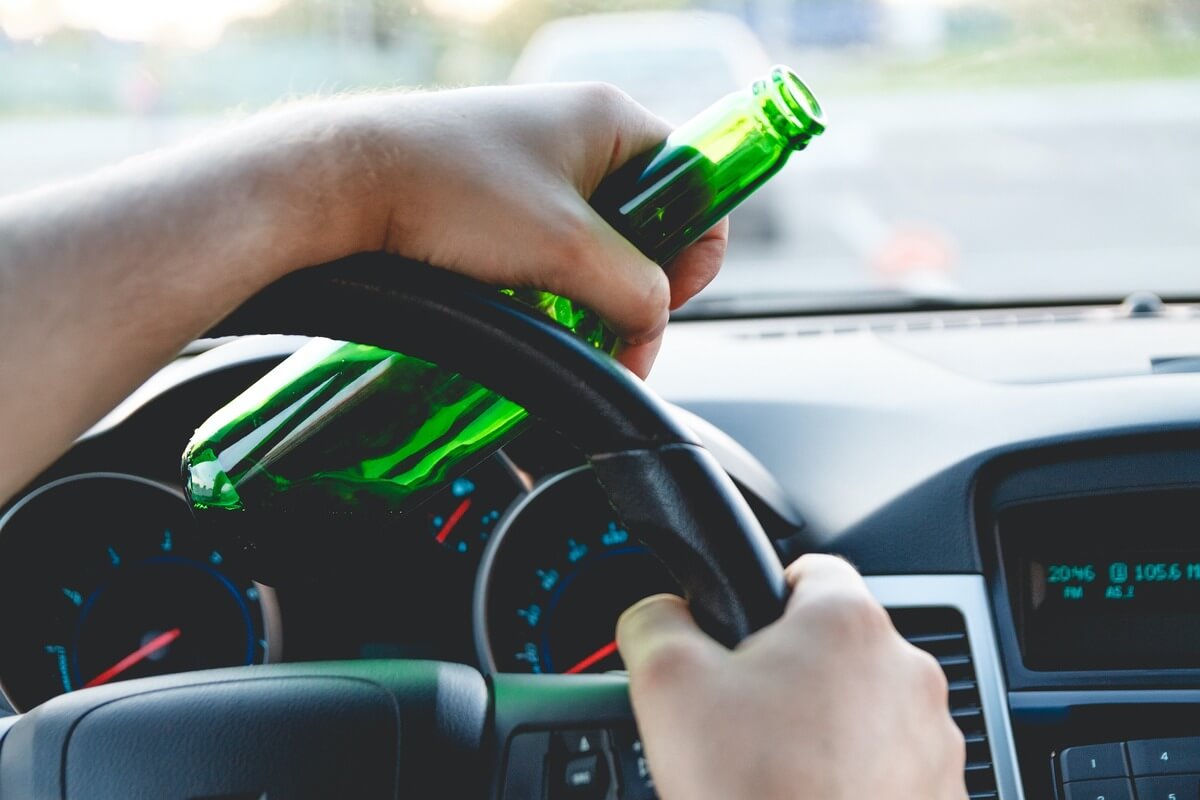
Associate at AKD Lawyers
Practice Areas: Personal Injury, Property Damage, Insurance Bad Faith Claims, Breaches of Contracts, Employer-Employee Disputes

When a car crash involves a drunk driver, most people assume the impaired driver is automatically at fault. While alcohol certainly increases risk, fault in Louisiana isn’t always that simple. The law looks beyond intoxication and considers how each driver’s actions contributed to the crash.
Understanding how fault is decided can help victims, families, and even drivers accused of DUI know what to expect under Louisiana’s comparative negligence system.
Understanding Louisiana’s Approach to Drunk Driving and Negligence
Driving under the influence is a serious violation in Louisiana, but it doesn’t automatically make the impaired driver 100% responsible for an accident.
Legally, DUI is often treated as negligence per se, meaning the act of driving while intoxicated already violates a safety law. However, for full civil liability, it must also be proven that the driver’s impairment directly caused the crash.
Louisiana’s DUI laws are strict. Under Louisiana Revised Statutes §32:661–§32:666, drivers give implied consent to alcohol testing. If test results confirm impairment, it becomes strong evidence in both criminal and civil cases.
But impairment alone isn’t enough to determine full liability. Courts look at the whole situation: how each driver acted, whether road conditions contributed, and if other external factors played a role.
How Comparative Negligence Works in Louisiana
Louisiana follows comparative negligence, outlined in Civil Code Article 2323, which means fault is divided based on each person’s share of responsibility.
If both drivers made mistakes, the court assigns a percentage of blame to each. For example, if one driver was impaired but the other was speeding or distracted, the liability may be shared.
Here’s a simple way to understand it:
- If the drunk driver is 70% at fault and the other driver is 30% at fault, the damages each can recover are reduced by their share of fault.
- Even if one driver violated DUI laws, they may still recover partial compensation if another factor contributed.
This shared fault rule encourages fairness and prevents automatic blame based solely on intoxication.
“Under Louisiana Civil Code Article 2323, each person involved in an accident is responsible only for their proportion of fault even if one driver was intoxicated.”

Key Factors That Influence Liability
Courts look at every piece of evidence to determine who caused the crash. The presence of alcohol is important, but other details matter too.
Driver Behavior
- Speeding, tailgating, or running red lights strengthens the case against the drunk driver.
- However, if the sober driver also ignored traffic laws, liability may be shared.
Road and Weather Conditions
Poor lighting, construction zones, or wet roads can affect fault distribution. If unsafe conditions played a role, even an impaired driver may not bear full responsibility.
Actions of Other Drivers
Sometimes another vehicle’s illegal turn or lane change triggers the crash. In that case, liability may be shared between multiple parties.
Third-Party Factors
Vehicle defects or a bar serving alcohol to a visibly intoxicated person (known as dram shop liability) can also influence the outcome.
If you’ve been in an accident like this, consulting a New Orleans car accident attorney can help you understand how Louisiana’s comparative negligence laws apply to your situation. Attorneys familiar with local traffic laws and insurance procedures can interpret fault distribution accurately and ensure your rights are protected.
When the Drunk Driver Isn’t Entirely Liable
While DUI often points toward fault, there are cases where the impaired driver isn’t completely responsible. Louisiana courts examine the chain of events carefully.
- Rear-End Collisions: If a sober driver rear-ends a stopped or slow-moving drunk driver, fault usually falls on the rear driver unless there’s evidence showing the front driver acted unpredictably.
- Lane Departure Cases: If a sober driver crosses lanes or drives recklessly, they could share or even hold the majority of fault.
- Multiple Vehicle Crashes: In pile-ups, each driver’s behavior is reviewed separately. Impairment might play a role, but it isn’t the sole factor.
“Police reports and accident reconstruction data often determine whether impairment directly caused the crash or merely contributed to it.”
Civil vs. Criminal Fault
A DUI conviction is strong evidence in civil court, but it doesn’t automatically make the driver fully liable. The criminal court decides guilt, while the civil court determines financial responsibility for damages.
Even when a person is convicted of DUI, if the other driver’s negligence contributed, fault may still be divided. Civil cases rely on proving causation that the impaired driver’s behavior directly caused the crash, not just on the fact of intoxication.
In many cases, this distinction becomes crucial. A driver might face criminal penalties for driving under the influence but still share civil liability with another driver, a municipality for unsafe road conditions, or even a vehicle manufacturer if mechanical failure played a role.
Understanding this separation helps victims pursue fair compensation without assuming that criminal guilt automatically translates into full civil fault.

Evidence That Helps Determine Fault
Proving fault in a drunk driving accident requires clear, factual evidence. The following are commonly used in Louisiana courts:
- Police and accident reports
- Witness statements and photographs
- Blood alcohol concentration (BAC) results
- Traffic camera or dashcam footage
- Expert testimony from reconstruction specialists
“Comparative negligence in Louisiana can reduce, but not eliminate, compensation if multiple drivers share blame.”
Collecting and preserving this evidence quickly can make a major difference in determining liability.
Examples of Shared Fault in Drunk Driving Accidents
|
Scenario |
Primary Cause | Fault Distribution |
Explanation |
| Drunk driver runs red light | DUI violation | 100% drunk driver | Clear causation through traffic law breach |
| Sober driver rear-ends stopped drunk driver | Sober driver | 70% sober / 30% impaired driver | Rear driver typically responsible |
| Bad weather contributes | External factor | 60% drunk driver / 40% road conditions | Fault shared under Article 2323 |
| Both drivers speeding | Both negligent | 50% each | Shared liability for reckless behavior |
FAQs
Are drunk drivers always fully liable for an accident?
Not always. In Louisiana, liability depends on proving the impaired driver’s actions directly caused the crash, not just their intoxication.
What is comparative negligence in Louisiana car accidents?
Comparative negligence means each driver shares fault based on their actions, and compensation is reduced by their percentage of responsibility.
Can a sober driver be partly at fault in a DUI crash?
Yes. If the sober driver’s actions, like speeding or illegal turns, contributed, they may share partial liability under Louisiana law.
Does a DUI conviction guarantee fault in civil court?
No. A conviction supports evidence of impairment, but civil liability also requires proving that intoxication directly caused the accident or damages.
Conclusion
Fault in drunk driving accidents isn’t automatic. In Louisiana, liability depends on how each driver’s actions contributed to the crash. Comparative negligence ensures that responsibility is shared fairly.
Understanding these laws helps drivers and victims make informed decisions after an accident.
If you or a loved one has been involved in a DUI-related crash, Alvendia, Kelly & Demarest Law Firm can explain your rights and guide you through your legal options. Reach out for a free consultation to understand your situation and next steps.
Categories

In 2003, after being dissatisfied with the quality of legal care for victims of car accidents, Roderick ‘Rico’ Alvendia sought to establish a new firm focused on providing high-quality legal services to aid injured victims and their families. J. Bart Kelly, sharing Rico’s passion for upholding justice, joined the firm later that year, and established a partnership.






